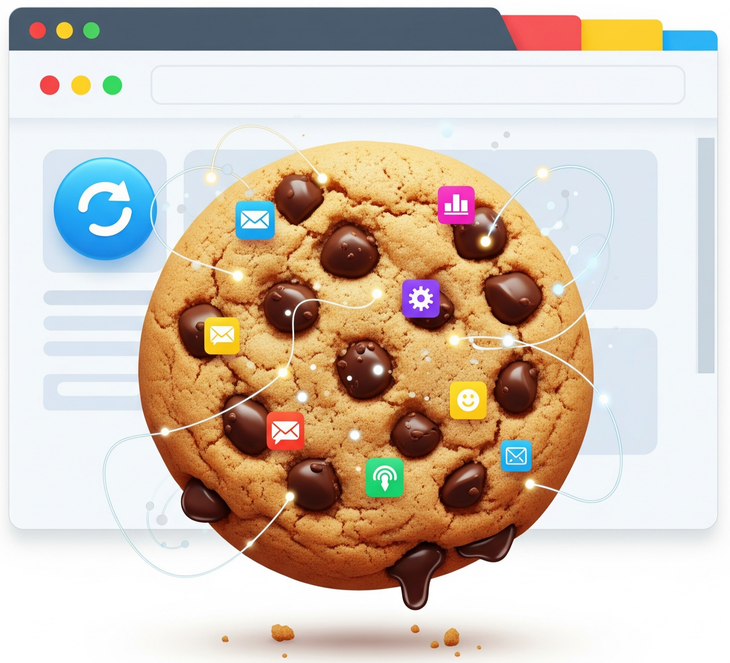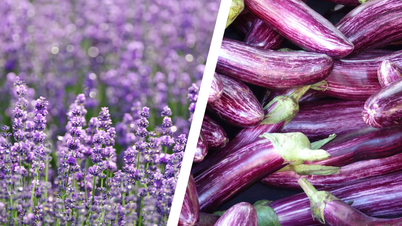
Image depicting website cookies
Every time you surf the web, do you notice the notifications asking about "cookies" popping up? Many people often click "agree" quickly without understanding what it is.
Actually, cookies are not a sweet cake, but they are very important, directly affecting the way you use the internet. Let's "decode" this special "cake" with us!
What are cookies?
Simply put, a cookie is a small file that a website saves in your browser. It helps the website "remember" who you are, what you have viewed, whether you have logged in, what you like... From there, the next visit is faster and more convenient.
But cookies are like “eyes” that websites (and third parties) use to track you online. They can record your browsing behavior, your location, the device you’re using, and even how long you spend on each news item.
Technically, cookies are text strings that contain information such as session IDs, preferences, or browsing behavior. They are created by web servers over the HTTP protocol and stored in browsers.
There are two main types: session cookies (which exist temporarily and are deleted when you close your browser) and persistent cookies (which last for months or years). Additionally, third-party cookies are often used by advertisers to track you across multiple websites, creating a detailed profile of your online habits.
Why are cookies important?
Cookies play a key role in enhancing your online experience, making things more convenient and personal.
First, we have to talk about the convenience that cookies bring. Thanks to cookies, you don't have to waste time logging in every time you visit Facebook, Gmail or your favorite websites. They automatically "remember" you, keeping you logged in so you can access them quickly.
Especially when shopping online, cookies act as a trusted inventory keeper, ensuring your shopping cart doesn't "evaporate" between visits, saving you the trouble of re-selecting items you like.
Second, cookies also make content more “personalized” to you. Entertainment platforms like YouTube and Netflix use cookies to “understand” your preferences and suggest movies and videos that you might like.
Similarly, e-commerce platforms also rely on cookies to suggest products that are right for you, from clothes to home appliances, making shopping much more enjoyable and efficient.
However, the importance of cookies is not limited to users but also extremely meaningful to online business activities. For websites, cookies provide valuable data to help them improve their services. For example, they help analyze user behavior, thereby optimizing the website interface or displaying more effective ads.
But here's a "double-edged sword" you need to be aware of: third-party cookies from advertising companies that can track you across multiple websites. They can build detailed profiles of your interests, habits, and even your geographic location, and then sell this data to advertisers to “target” ads more precisely. This raises privacy issues that users should be very concerned about.
Why should you care about and manage cookies?
Cookies offer great convenience, like never having to log in again or getting tailored product recommendations. But they also have a downside. Third-party cookies can collect personal data , from browsing history to location, which is sometimes sold to other parties without your knowledge. This raises privacy issues, especially when laws like GDPR in Europe require websites to ask for your consent before using cookies.
To protect yourself, you can easily manage cookies . Most browsers (Chrome, Firefox, Safari) allow you to view, delete, or block cookies. Incognito mode helps reduce cookies, and extensions like uBlock Origin effectively block third-party cookies.
Most importantly, read the cookie notice carefully and choose to allow only necessary cookies. Understanding and controlling cookies helps you balance convenience and safety when surfing the web.
Take a few seconds to read the cookie notice next time, don't just click "agree". Making informed decisions will help you protect your personal data and surf the web with confidence!
Cookies aren't bad, but they do need to be managed. They make the web more convenient, but they also pose a privacy risk. Understanding and controlling cookies will help you enjoy the internet without worrying about losing your data. The next time you see a cookie notification, take a moment to think before you act!
Source: https://tuoitre.vn/cookie-la-gi-ma-web-nao-cung-hoi-va-vi-sao-ban-nen-quan-tam-20250610104610597.htm































































































Comment (0)